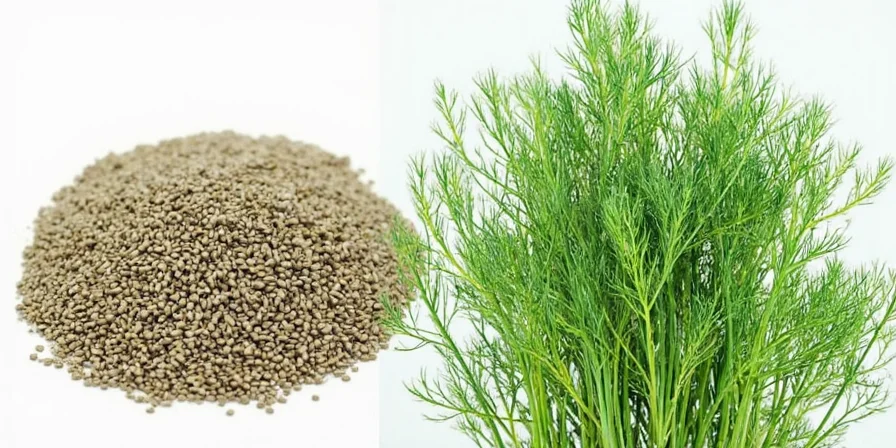
Dill seed comes from the ripened fruit of the dill plant and delivers concentrated, earthy warmth ideal for long-cooking dishes, while dill weed refers to the fresh or dried leafy foliage with bright, grassy notes best added at the end of cooking to preserve delicate flavors.
Table of Contents
- Introduction
- What's the Difference?
- Flavor Profiles
- Culinary Uses
- When to Use Which?
- Substitution Tips
- Storage and Shelf Life
- Culinary Science Perspective
- Fun Facts
- Frequently Asked Questions
- Conclusion
Introduction
Home cooks frequently confuse dill seed and dill weed, leading to disappointing dishes. This guide delivers precise distinctions for culinary enthusiasts seeking authentic flavor execution. Understanding these differences transforms ordinary recipes into exceptional creations through informed spice selection. Professional chefs rely on these specific characteristics to achieve restaurant-quality results in home kitchens.

What's the Difference?
Dill seed and dill weed originate from Anethum graveolens but represent distinct plant components with unique properties. Recognizing their botanical separation prevents recipe failures. Understanding these differences between dill seed vs dill weed is crucial for authentic flavor development in pickling, baking, and fresh preparations.
| Feature | Dill Seed | Dill Weed |
|---|---|---|
| Part of Plant | Ripened fruit containing seeds | Fresh or dried leafy foliage |
| Texture | Hard, small, oval-shaped (2-4mm) | Soft, delicate, feathery |
| Flavor Intensity | Concentrated, earthy, warm (caraway-citrus notes) | Subtle, fresh, grassy (fennel-like without licorice) |
| Heat Tolerance | Withstands 2+ hours simmering without flavor loss | Loses potency after 2 minutes at 60°C (140°F) |
| Optimal Use Timing | Add at beginning of cooking process | Add during final 2 minutes or as garnish |
Flavor Profiles
Dill seed offers complex notes of caraway and citrus with peppery undertones, ideal for foundational flavors. Dill weed provides bright, herbaceous top notes resembling fennel without licorice intensity. Their chemical compositions differ significantly: seed contains higher concentrations of limonene (45%) and carvone (30%), while weed features volatile compounds that dissipate rapidly during cooking. This explains why dill weed loses 80% of its aromatic compounds within 5 minutes of exposure to heat above 60°C.
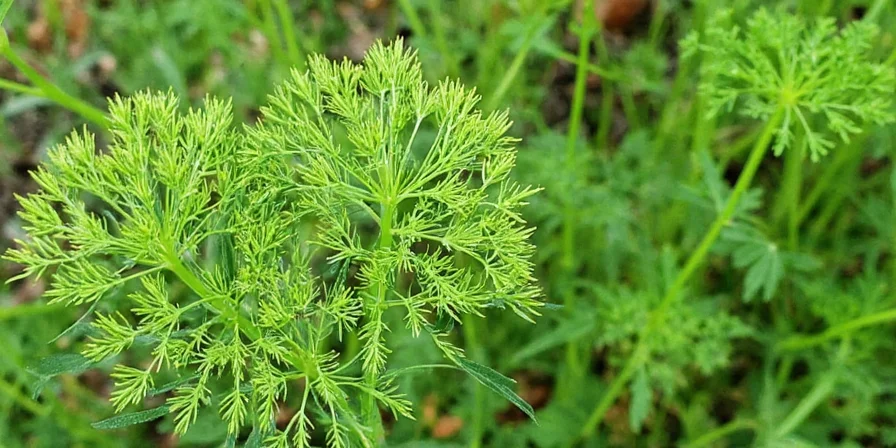
Culinary Uses
Maximize flavor impact through strategic application:
- Dill Seed Applications:
- Brine solutions for pickled vegetables (use 1 tbsp per quart)
- Whole-grain bread doughs (add during mixing stage)
- Bean stew flavor bases (toast seeds first for 30 seconds)
- Meat rub formulations (combine with coriander and mustard)
- Dill Weed Applications:
- Finishing touch for cold soups like borscht (2 tbsp per serving)
- Raw fish preparation (gravlax - 1/4 cup per pound of salmon)
- Emulsified sauces and dressings (add after emulsion forms)
- Fresh vegetable salads (toss with vinaigrette first)
When to Use Which?
Selection depends on dish construction and cooking method:
- Choose Dill Seed For:
- Dishes requiring minimum 20 minutes simmering (stews, braises)
- Flavor penetration in dense ingredients (root vegetables, legumes)
- Structural role in spice blends (curry powders, pickling mixes)
- Choose Dill Weed For:
- Raw preparations or last-minute additions (garnishes, dressings)
- Delicate proteins requiring subtle enhancement (fish, chicken)
- Visual presentation elements (bright green color contrast)
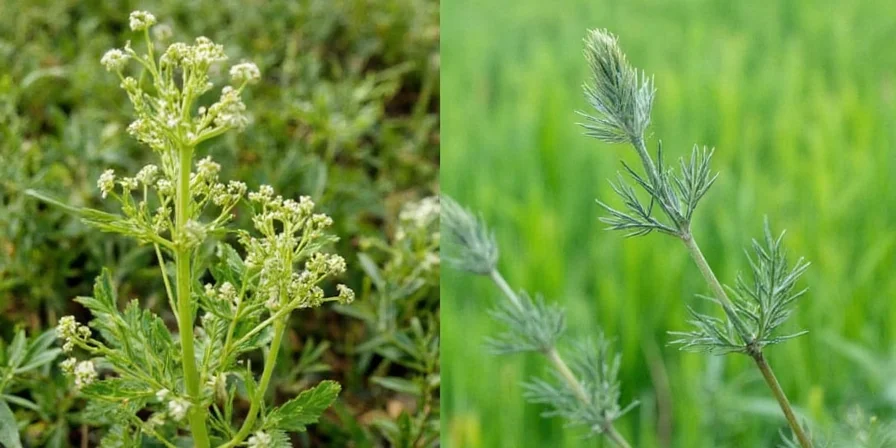
Substitution Tips
Substitutions require precision adjustments to maintain flavor balance:
- Seed for Weed: Use 1:2 ratio (1 tsp seed = 2 tbsp weed). Grind seeds to release oils before incorporation. Best in cooked dishes requiring 30+ minutes simmering. Never substitute in cold preparations.
- Weed for Seed: Triple quantity (1 tsp seed = 3 tbsp weed). Add during final cooking stage. Avoid in long-simmered recipes as flavor dissipates completely after 10 minutes of cooking.
Substitutions alter flavor architecture—consider them recipe adaptations rather than direct replacements. For perfect dill seed to dill weed conversion, remember these professional chef ratios that maintain authentic flavor profiles.
Storage and Shelf Life
Maintain optimal potency through proper storage techniques:
- Dill Seeds: Store in opaque containers at 15-18°C. Retains full flavor for 36 months. Check viability by rubbing between fingers—strong citrus aroma indicates freshness. Vacuum sealing extends shelf life to 48 months.
- Dill Weed: Refrigerate fresh stems in water (like flowers) with plastic bag covering. Freeze dried weed in vacuum-sealed packs with oxygen absorbers. Dried weed loses 50% potency after 12 months; fresh weed lasts 5-7 days refrigerated.
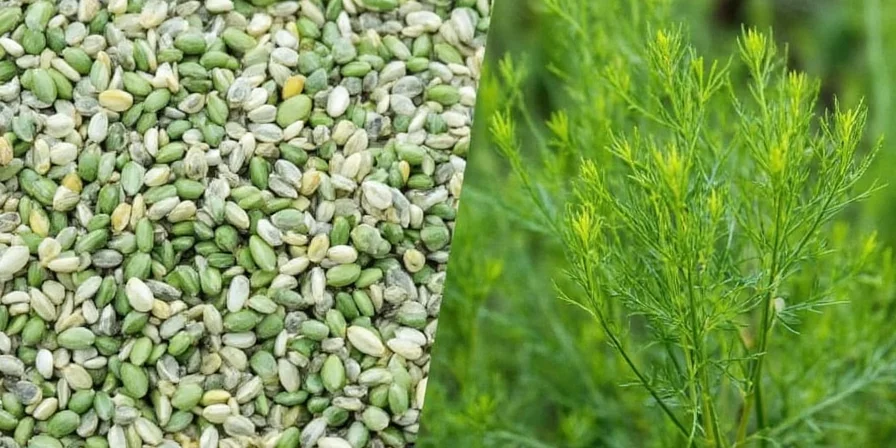
Culinary Science Perspective
Recent food chemistry research reveals why these forms interact differently with ingredients. Dill seed's higher terpene concentration (78% vs weed's 22%) binds effectively with fat molecules, making it ideal for oil-based infusions that require minimum 15 minutes to develop flavor. Dill weed's volatile compounds react instantly with acidic components—explaining its superior performance in vinaigrettes versus cooked tomato sauces. This molecular behavior dictates their non-interchangeable roles in flavor layering, which is why professional chefs never substitute one for the other in critical applications.
Fun Facts About Dill
- Ancient Egyptian medical texts document dill's use in digestive remedies 5,000 years ago, specifically recommending seeds for flatulence relief.
- Medieval Scandinavian sailors carried dill seeds to prevent scurvy during long voyages, consuming 1 teaspoon daily for vitamin C.
- The compound dillapiole in seeds demonstrates measurable antimicrobial properties in laboratory studies, effective against E. coli at concentrations above 0.5%.
- Dill weed loses 90% of its vitamin C content within 24 hours of harvest, explaining why fresh采摘 is crucial for nutritional benefits.
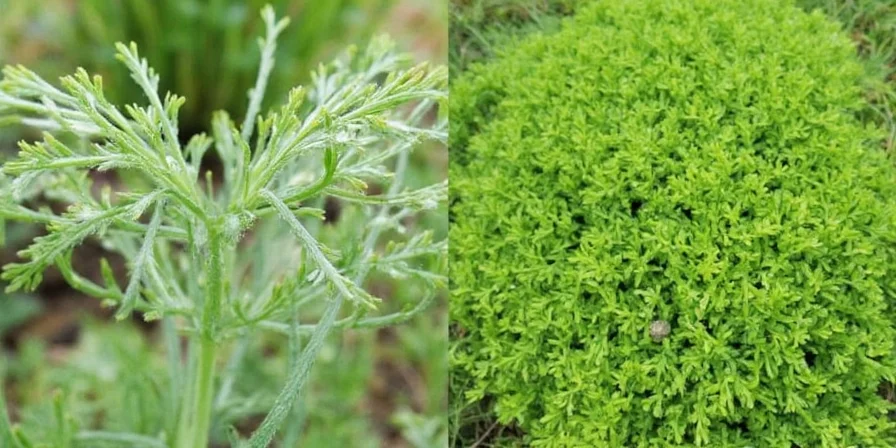
Frequently Asked Questions
Can I use dill seed in place of dill weed for tzatziki?
No. Dill seed's intense flavor overpowers the delicate balance of tzatziki. Fresh dill weed is essential for authentic taste and texture. Substitute with fresh parsley only in emergencies. Professional chefs measure dill weed precisely at 3 tablespoons per cup of yogurt for perfect tzatziki.
Why does my dill weed lose flavor so quickly in cooked dishes?
Dill weed contains heat-sensitive compounds that evaporate above 60°C (140°F). Always add it during the final 2 minutes of cooking or as a garnish to preserve 80% of its aromatic properties. Adding earlier results in complete flavor loss within 5 minutes of sustained heat exposure.
How do I harvest dill weed for maximum flavor?
Cut stems just before flowering when essential oil concentration peaks at 0.8-1.2%. Harvest in early morning after dew evaporates for highest potency. Never remove more than one-third of the plant at once. Professional growers measure optimal harvest time at 65-70 days after planting when oil concentration is highest.
Are dill seed and dill pollen the same thing?
No. Dill pollen comes from flowering heads and has a distinct floral-citrus profile. It's 15 times more potent than dill weed and used at 1/4 teaspoon per dish as a finishing spice. Dill pollen contains 3.2% essential oils compared to 0.8% in dill weed, making it unsuitable as a direct substitute for seeds in recipes requiring extended cooking.
Conclusion
Dill seed and dill weed serve fundamentally different culinary functions despite shared botanical origins. Mastering their distinct applications prevents flavor compromises in dishes. Strategic selection based on cooking method, ingredient density, and flavor layering objectives elevates home cooking precision. This knowledge empowers cooks to harness each form's unique properties for authentic results. Remember these key differences between dill seed and dill weed to transform ordinary recipes into exceptional culinary creations through informed spice selection.

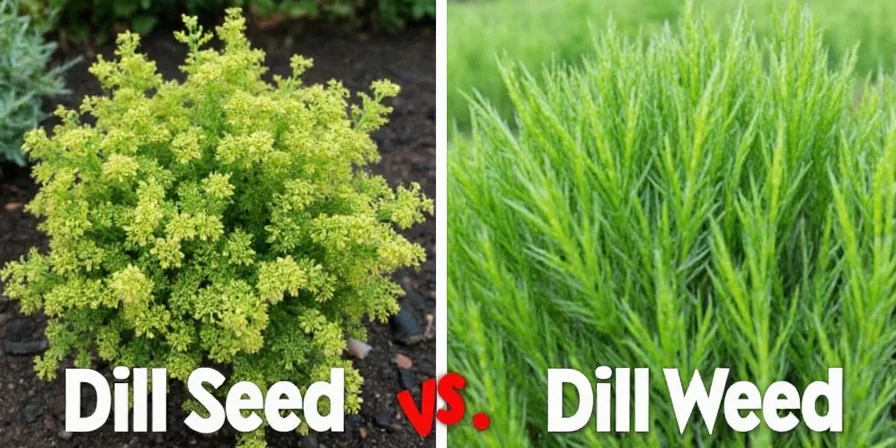









 浙公网安备
33010002000092号
浙公网安备
33010002000092号 浙B2-20120091-4
浙B2-20120091-4